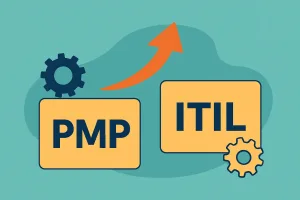Introduction
A Project Management (PM) portfolio serves as a comprehensive collection of an individual’s work, showcasing their skills, experiences, and accomplishments. A well-structured PM portfolio typically includes various components such as project summaries, methodologies employed, outcomes achieved, and lessons learned. It acts not only as a testament to a project manager’s technical capabilities but also as a reflection of their overall approach to managing projects effectively.
Traditionally, the emphasis in project management has been placed on technical skills. These hard skills encompass project planning, process management, and the use of specific tools and methodologies. While these competencies are undeniably important, they often overshadow another critical aspect of project management: soft skills.
Soft skills, which include communication, leadership, teamwork, and emotional intelligence, are essential for navigating the complexities of project environments. They enable project managers to foster collaboration among team members, effectively communicate with stakeholders, and adapt to changing circumstances. As the landscape of project management evolves, it becomes increasingly clear that success is not solely determined by technical expertise but also by the ability to engage and motivate people.
In this exploration, we will delve into the significance of soft skills within PM portfolios, illustrating how they complement technical skills and contribute to overall project success. By recognizing the value of these interpersonal abilities, project managers and HR professionals can better prepare themselves and their teams for the challenges of modern project management.
Understanding Soft Skills in Project Management
The significance of soft skills cannot be overstated. While technical expertise is essential for executing project tasks, it is the soft skills that often determine the success of a project and the effectiveness of a project manager.
Defining Soft Skills
Soft skills are the interpersonal and communication abilities that enable individuals to interact effectively and harmoniously with others. In project management, key soft skills include:
- Communication: The ability to convey information clearly and effectively to team members, stakeholders, and clients is crucial. This includes not only verbal communication but also active listening and non-verbal cues.
- Teamwork: Successful project management relies on collaboration. Teamwork involves working cohesively with diverse groups, fostering a sense of unity, and leveraging each member’s strengths to achieve common goals.
- Leadership: A project manager must inspire and guide their team, making decisions that align with project objectives while also motivating team members to perform at their best.
- Emotional Intelligence: This skill involves recognizing and managing one’s own emotions, as well as understanding and influencing the emotions of others. High emotional intelligence helps project managers navigate conflicts and build strong relationships.
The Difference Between Hard Skills and Soft Skills
Hard skills, often referred to as technical skills, are specific, teachable abilities that can be quantified. Examples include project planning, budgeting, and proficiency in project management software. These skills are typically acquired through education and training and can be demonstrated through certifications or practical experience.
In contrast, soft skills are more subjective and harder to measure. They encompass a range of personal attributes and social skills that influence how effectively individuals interact with others. While hard skills can be essential for completing specific tasks, soft skills are critical for fostering collaboration, resolving conflicts, and leading teams effectively.
Complementing Technical Skills with Soft Skills
The interplay between soft skills and technical skills is vital in project management. While technical skills enable project managers to plan and execute projects, soft skills enhance their ability to lead teams and engage stakeholders. For instance:
- Effective Communication: A project manager with strong communication skills can articulate project goals and expectations clearly, ensuring that all team members are aligned and informed. This reduces misunderstandings and enhances productivity.
- Leadership and Team Dynamics: A project manager who demonstrates leadership through emotional intelligence can create a positive team environment, encouraging collaboration and innovation. This is particularly important in high-pressure situations where team morale can significantly impact project outcomes.
- Problem-Solving: Soft skills such as critical thinking and adaptability allow project managers to navigate challenges and make informed decisions. These skills enable them to respond to unforeseen issues with agility, ensuring that projects stay on track.
The Importance of Soft Skills in PM Success
Technical skills are undeniably important; however, the significance of soft skills cannot be overstated. These interpersonal abilities are crucial for fostering effective communication, enhancing team dynamics, and ultimately driving project success. Here’s an exploration of why soft skills are essential for project managers.
Facilitating Better Communication
Effective communication is the cornerstone of successful project management. Soft skills such as active listening, clarity in expression, and the ability to convey complex ideas simply are vital for ensuring that all team members are on the same page. When project managers possess strong communication skills, they can:
- Encourage Open Dialogue: By creating an environment where team members feel comfortable sharing their thoughts and concerns, project managers can address issues before they escalate, leading to smoother project execution [1].
- Clarify Expectations: Clear communication helps in setting and managing expectations among stakeholders, which is crucial for maintaining project alignment and focus [2].
- Foster Collaboration: Soft skills enable project managers to facilitate collaboration among diverse team members, ensuring that everyone contributes effectively to the project goals [3].
The Role of Emotional Intelligence in Managing Team Dynamics
Emotional intelligence (EI) is a key soft skill that significantly impacts team dynamics. It involves the ability to recognize, understand, and manage one’s own emotions, as well as the emotions of others. In project management, high emotional intelligence can lead to:
- Improved Conflict Resolution: Project managers with strong EI can navigate conflicts more effectively by understanding the emotional triggers of team members and addressing them constructively [4].
- Enhanced Team Morale: By demonstrating empathy and support, emotionally intelligent project managers can boost team morale, leading to increased motivation and productivity [5].
- Adaptability to Change: Projects often face unexpected challenges. Project managers with high EI can adapt their leadership style to meet the emotional needs of their team during such times, fostering resilience and maintaining focus on project objectives [6].
Case Studies and Research on the Impact of Soft Skills
Numerous studies and case examples illustrate the profound impact of soft skills on project outcomes. For instance:
- A study conducted by the Project Management Institute (PMI) found that projects led by managers with strong soft skills were 30% more likely to meet their objectives compared to those led by managers who primarily relied on technical skills [7].
- In a case study involving a large-scale IT project, the project manager’s ability to communicate effectively and manage team dynamics through emotional intelligence resulted in a 25% reduction in project delays and a significant increase in stakeholder satisfaction [8].
- Research published in the Journal of Project Management highlighted that teams with high emotional intelligence demonstrated better collaboration and problem-solving capabilities, leading to improved project performance metrics [9].
Incorporating Soft Skills in PM Portfolios
Technical expertise is often highlighted as a key component of success. However, the significance of soft skills cannot be overstated. These interpersonal abilities are crucial for effective communication, team collaboration, and overall project success. As project managers and HR professionals seek to enhance their portfolios, it is essential to incorporate soft skills alongside technical competencies. Here are actionable insights on how to effectively showcase these skills in project management portfolios.
Showcasing Soft Skills
- Feedback and Testimonials: Collect feedback from team members, clients, and stakeholders that specifically highlights your soft skills. This could include comments on your communication style, leadership abilities, or conflict resolution skills. Including these testimonials in your portfolio can provide concrete evidence of your interpersonal effectiveness [6][10].
- Examples of Team Collaboration: Document specific instances where your soft skills made a difference in project outcomes. For example, describe a situation where your emotional intelligence helped resolve a team conflict or how your leadership inspired a team to meet tight deadlines. Use case studies or narratives to illustrate these experiences [11][14].
- Visual Aids: Incorporate visual elements such as infographics or charts that represent your soft skills development over time. This could include a timeline of training sessions attended, workshops participated in, or certifications earned that focus on soft skills like communication and leadership [8][10].
Importance of Continuous Improvement
The landscape of project management is ever-evolving, and so are the demands for soft skills. Continuous improvement and training in these areas are vital for staying relevant and effective. Engaging in regular training sessions, workshops, or online courses can help project managers refine their soft skills. This commitment to personal development not only enhances individual capabilities but also contributes to the overall success of the projects they manage [10][15].
Self-Assessment for Soft Skills Development
To effectively develop soft skills, project managers should engage in self-assessment. Here are some tips for conducting a thorough evaluation:
- Reflect on Past Experiences: Take time to analyze previous projects and identify moments where soft skills played a crucial role. Consider what went well and what could have been improved [12][14].
- Seek Constructive Criticism: Encourage peers and mentors to provide honest feedback on your soft skills. This can help identify areas for growth and development [9][11].
- Set Specific Goals: Based on your self-assessment, establish clear, achievable goals for improving specific soft skills. For instance, if communication is an area for improvement, set a goal to practice public speaking or active listening techniques [10][12].
Evaluating Soft Skills During Recruitment and Development
Technical expertise is undeniably important; however, the significance of soft skills cannot be overstated. As project managers navigate complex team dynamics and stakeholder relationships, their ability to communicate effectively, resolve conflicts, and lead with empathy becomes crucial. This section will guide HR professionals on how to assess these essential soft skills during the recruitment process and foster their development within the organization.
Methods for Evaluating Soft Skills During the Hiring Process
- Behavioral Interviews: One of the most effective techniques for assessing soft skills is through behavioral interviews. This method involves asking candidates to provide specific examples of how they have handled situations in the past. For instance, questions may focus on conflict resolution, teamwork, or leadership experiences. The STAR (Situation, Task, Action, Result) method can be particularly useful here, as it encourages candidates to articulate their thought processes and outcomes clearly [9][12].
- References and Peer Feedback: Gathering insights from previous employers or colleagues can provide a deeper understanding of a candidate’s interpersonal skills. References can highlight how a candidate has interacted with team members and managed relationships, offering a more comprehensive view of their soft skills [4][14].
- Situational Judgment Tests: These assessments present candidates with hypothetical scenarios relevant to project management and ask them to choose how they would respond. This method can effectively gauge a candidate’s decision-making abilities and interpersonal skills in real-world contexts [4][8].
- Role-Playing Exercises: Simulating project management scenarios can help evaluate how candidates handle pressure, communicate with team members, and resolve conflicts. This hands-on approach allows HR professionals to observe candidates’ soft skills in action [10][14].
Importance of Soft Skills Training and Development Programs
Once project managers are onboarded, continuous development of their soft skills is vital for long-term success. Organizations should invest in training programs that focus on enhancing communication, emotional intelligence, and leadership abilities. Such programs not only improve individual performance but also contribute to a more cohesive team environment. Research indicates that organizations that prioritize soft skills training see improved project outcomes and employee satisfaction [11][13].
The Role of Mentorship in Enhancing Soft Skills
Mentorship plays a pivotal role in the development of soft skills among project managers. Experienced mentors can provide guidance, share insights from their own experiences, and offer constructive feedback on interpersonal interactions. This relationship fosters a safe space for mentees to practice and refine their soft skills, ultimately leading to greater confidence and effectiveness in their roles. Additionally, mentorship can help cultivate a culture of continuous learning and support within the organization, which is essential for nurturing future leaders in project management [10][14].
Challenges and Barriers to Soft Skills Development
The significance of soft skills is often overshadowed by the emphasis on technical expertise. However, the successful execution of projects hinges not only on hard skills but also on the ability to navigate interpersonal dynamics and foster collaboration. This section explores the challenges and barriers project managers face in developing soft skills, along with strategies to overcome these obstacles.
Common Misconceptions About Soft Skills
One prevalent misconception is that soft skills are innate traits that individuals either possess or lack. This belief can lead to the assumption that these skills cannot be developed or improved over time. In reality, soft skills such as communication, leadership, and emotional intelligence can be cultivated through practice and experience. Project managers should recognize that these skills are not fixed but can evolve with intentional effort and training [6][10].
Organizational Barriers to Soft Skills Training
Several organizational barriers hinder the development of soft skills among project managers:
- Lack of Resources: Many organizations prioritize technical training and may not allocate sufficient resources for soft skills development. This can result in a gap where project managers are well-versed in technical aspects but struggle with interpersonal interactions [9][11].
- Prioritization of Technical Skills: The common focus on technical skills often sidelines the importance of soft skills. Organizations may undervalue the role of soft skills in project success, leading to a lack of training programs or initiatives aimed at enhancing these abilities [5][12].
- Cultural Resistance: In some organizational cultures, there may be a resistance to change or a reluctance to invest in soft skills training. This can stem from a belief that technical skills alone are sufficient for project success, which can stifle the development of a more holistic skill set [4][11].
Strategies for Overcoming Barriers
To address these challenges, project managers and organizations can implement several strategies:
- Integrate Soft Skills into Training Programs: Organizations should incorporate soft skills training into existing professional development programs. This can include workshops, mentorship opportunities, and team-building exercises that emphasize communication, conflict resolution, and leadership [6][10].
- Promote a Culture of Continuous Learning: Encouraging a culture that values continuous learning can help shift the focus from solely technical skills to a more balanced approach. This can involve recognizing and rewarding employees who demonstrate strong soft skills in their project management roles [8][11].
- Leverage Peer Learning: Creating opportunities for peer learning can facilitate the development of soft skills. Project managers can benefit from sharing experiences and strategies with one another, fostering an environment where soft skills are valued and practiced [3][6].
- Utilize Feedback Mechanisms: Implementing regular feedback mechanisms can help project managers identify areas for improvement in their soft skills. Constructive feedback from peers and stakeholders can guide their development and encourage a focus on interpersonal effectiveness [7][10].
By addressing these misconceptions and barriers, project managers can enhance their soft skills, ultimately leading to more successful project outcomes and improved team dynamics. The journey towards developing these essential skills is not only beneficial for individual project managers but also for the overall success of the organization.
Conclusion
The significance of soft skills cannot be overstated. As project managers navigate complex projects, the ability to communicate effectively, demonstrate emotional intelligence, and adapt to changing circumstances becomes crucial. These soft skills enhance project management effectiveness by fostering better relationships among team members, stakeholders, and clients, ultimately leading to successful project outcomes.
- Enhancing Effectiveness: Soft skills such as communication, leadership, and problem-solving are essential for project managers to build trust and collaboration within their teams. They enable project managers to mediate conflicts, motivate team members, and adapt to the dynamic nature of projects, which is increasingly recognized as a key factor in project success [6][8][10].
- Prioritizing Soft Skills: It is imperative for both project managers and HR professionals to prioritize the development of soft skills within their teams. By recognizing the value of these non-technical skills, organizations can cultivate a more resilient and effective project management workforce. This shift in focus can lead to improved job satisfaction, enhanced problem-solving abilities, and ultimately, better project outcomes [2][13][14].
In conclusion, the integration of soft skills into project management portfolios is not just an enhancement; it is a necessity for achieving sustained success in today’s complex project environments.
Find out more about Shaun Stoltz https://www.shaunstoltz.com/about/.
This post was written by an AI and reviewed/edited by a human.



